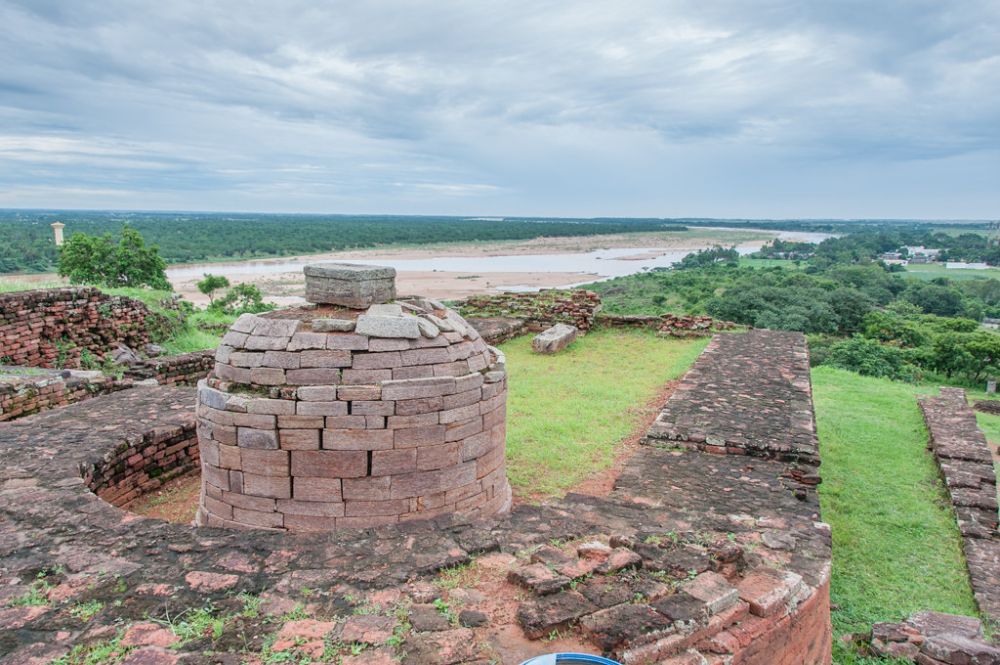

Located on the banks of the Vamsadhara River in the Srikakulam district of Andhra Pradesh, India, Salihundam is a historically significant site well-known for its Buddhist remnants and heritage. Overlooking the enchanting expanse of paddy fields and the gentle flow of the river, Salihundam has a serene vibe that attracts history enthusiasts and tourists alike.
In historical records, Salihundam is celebrated as a major Buddhist center from as early as the 2nd century CE to the 12th century CE. Here, Buddhism flourished under the patronage of various dynasties, including the Satavahanas, Ikshvakus, and the Eastern Ganga dynasty. The archaeological excavations have revealed numerous stupas, chaityas, viharas and a congregation hall, indicating the importance of this site in the transmission of Buddhist knowledge and wisdom.
The site gained attention following archeological excavations in the 19th and 20th centuries, unveiling its rich past and turning it into a sought-after destination for both national and international tourists with a penchant for Buddhism and history. The Archaeological Survey of India (ASI) has played a pivotal role in the restoration and maintenance of these monuments, making them accessible to visitors.
Heritage Tourism has seen a rise in Salihundam as tourists seek more meaningful experiences by exploring cultural and historical sites. This place serves as an illustrative example of the ancient Buddhist culture and architectural brilliance.
Eco-Tourism is another trend that is gaining popularity. The surrounding natural beauty of the region, including the river and lush landscapes, makes Salihundam a great spot for those who wish to combine their cultural interests with love for nature.
Educational Tourism has also played a significant role in the recent times, with several educational institutions organizing trips for students to help them understand the historical significance of the ancient Buddhist site.
Visitors to Salihundam can explore a variety of significant structures, such as:
Salihundam remains a lesser-known gem compared to other Buddhist sites in India, offering a tranquil escape from the hustle and bustle of busy tourist circuits. The best time to visit is between October and March when the climate is most forgiving. Transportation facilities to Salihundam are continually improving, with various accommodations emerging to cater to the needs of tourists.
To maintain the integrity of the site, sustainable tourism practices are being implemented, ensuring that the legacy of Salihundam can be passed down to future generations without compromising its historical authenticity. The government, along with local communities, is striving to develop Salihundam into a prominent hub of Buddhist pilgrimage and heritage tourism.